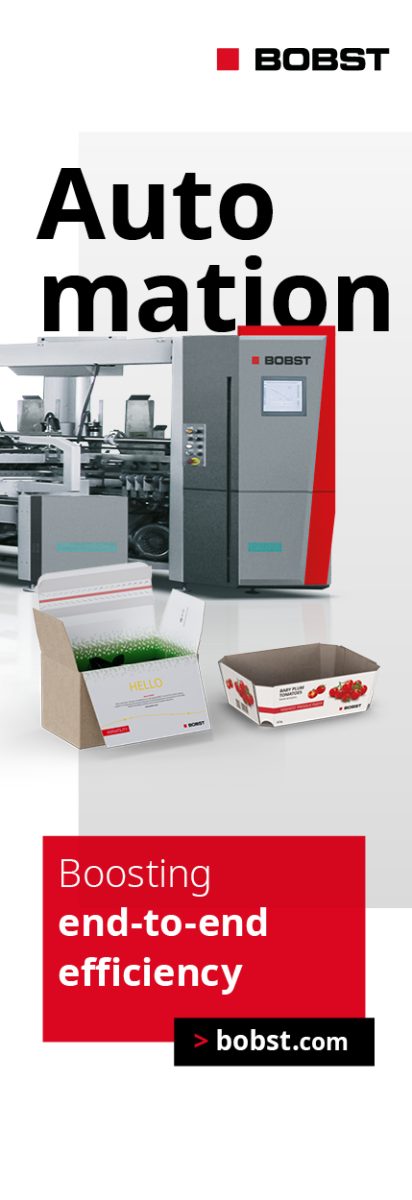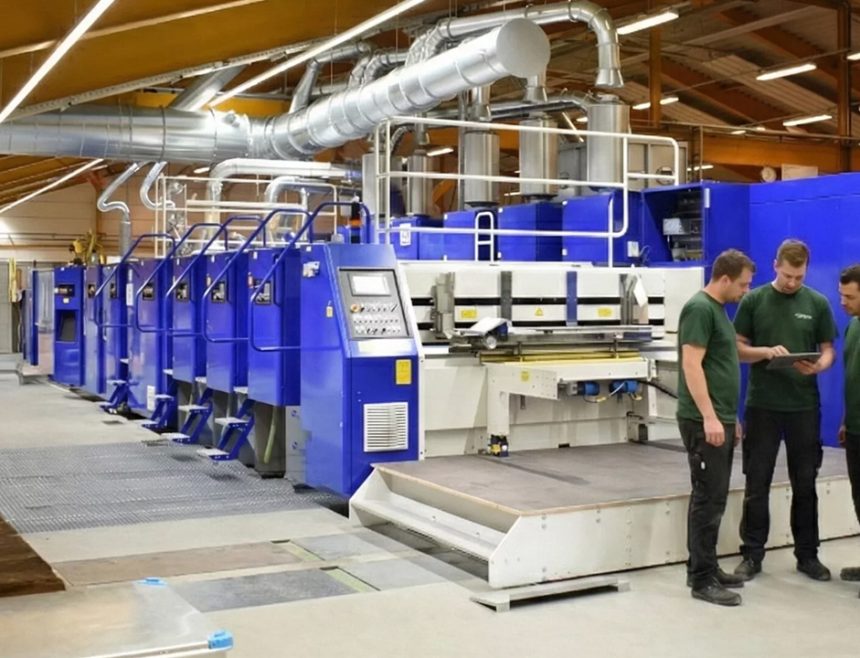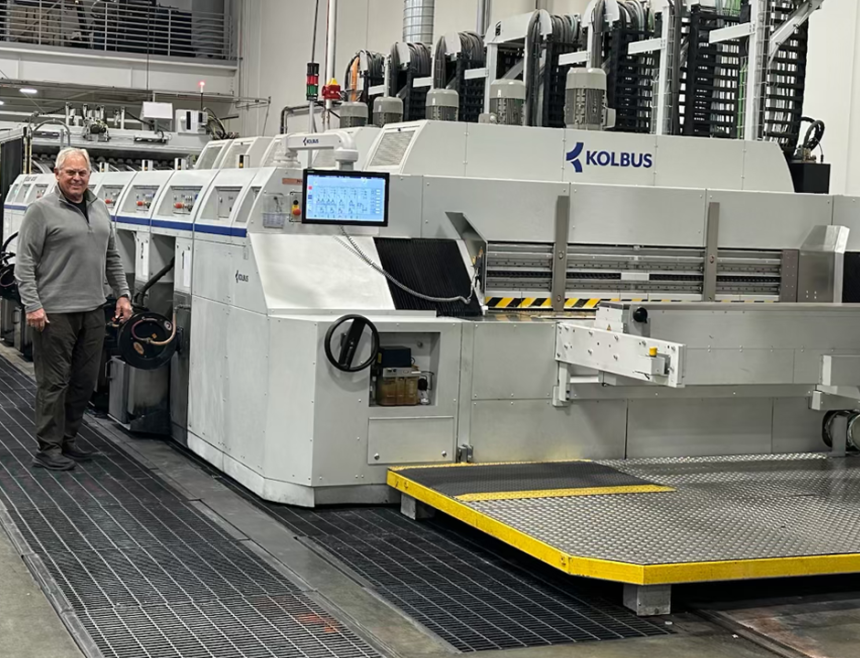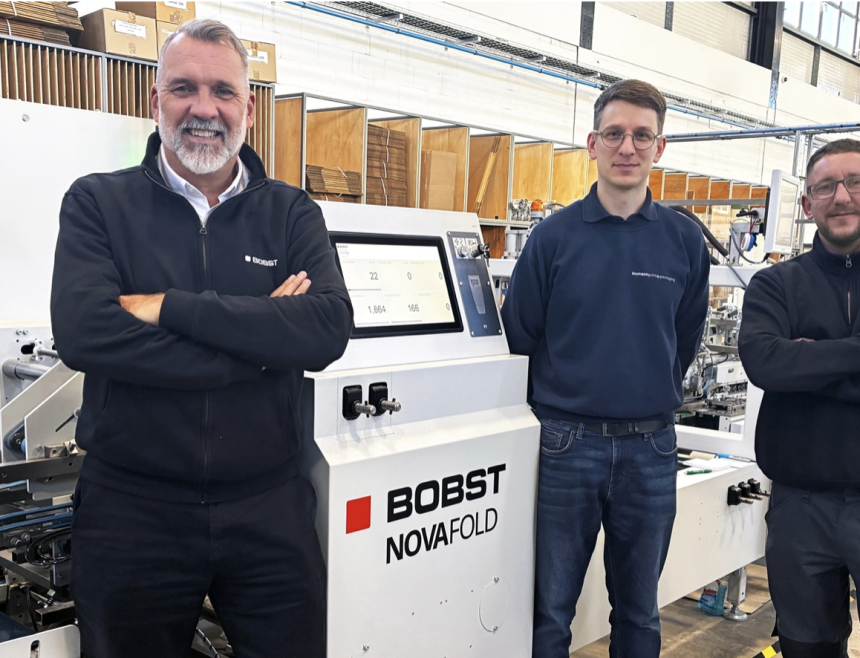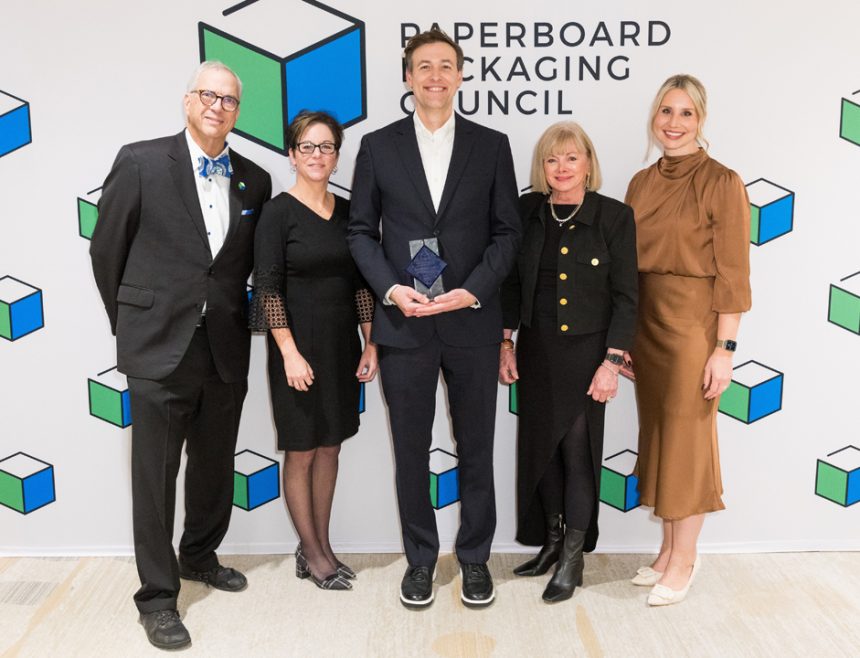Spectrum Packaging Corporation, specializing in innovative packaging and print solutions, recently installed a new seven-color Speedmaster XL 106 from HEIDELBERG.
The Orlando, FL-based company has grown steadily since beginning its transformation from commercial printing to folding carton production in 2012. As its packaging business developed quickly, SPC shifted completely away from commercial printing by 2018. Its new Speedmaster, equipped with UV curing and the newest Heidelberg technology including Prinect Inpress Control 3 & Prinect Inspection Control 3, represents the next phase in the company’s folding carton evolution as it looks to boost its quality, throughput for faster lead times, and in-house capabilities.
Increased throughput, decreased waste
 After years of consistent growth and recognition as one of the East Coast’s top packaging producers, SPC, a self-proclaimed small company, outgrew its current press capabilities. “We needed speed and logistics for runs of 100,000 sheets or more but also quick makereadies for short run customization,” said Mark Mills, President, SPC (pictured left). “The XL 106 was the best solution in terms of quality, speed, and service for our customers.”
After years of consistent growth and recognition as one of the East Coast’s top packaging producers, SPC, a self-proclaimed small company, outgrew its current press capabilities. “We needed speed and logistics for runs of 100,000 sheets or more but also quick makereadies for short run customization,” said Mark Mills, President, SPC (pictured left). “The XL 106 was the best solution in terms of quality, speed, and service for our customers.”
“With speeds up to 18,000 sheets per hour, the press will take us to the next level,” said Herb Colon, Pressroom Manager, SPC. “Everything will be quicker and more efficient coming off the press to the die-cutter, to the folder gluer to our quality inspection, and then out the door.”
Enhanced technology on the XL 106 includes Heidelberg UX AI along with a number of intelligent assistant systems that enable user-friendly, intuitive operation that boost performance, minimize makeready times, and lower waste and energy consumption. The press’s logistics system, with fully automated pile changes in the feeder and delivery, will further increase efficiency and eliminate downtime.
Zero defects
SPC, who primarily services the food, beverage, and pharmaceutical industries, opted for state-of-the-art color and quality control on its XL 106 via Prinect Inpress Control and Prinect Inspection Control. Prinect Inpress Control is an inline spectrophometer that measures and controls color and registers on the fly at any speed, delivering the first measurable result in less than 60 sheets. This is SPC’s first press with completely inline color and quality control, which will contribute to quicker makereadies and lower waste on board materials.
With Prinect Inspection Control 3, two high-resolution color cameras in the coating unit scan each sheet for inconsistencies like material defects, hickeys, ink splashes, and scumming – preventing costly errors downstream. The entire system runs autonomously during the press run and automatically triggers a comparison between each printed sheet and a reference PDF of the customer’s approved artwork.
Mills added, “One of the reasons we invested in this press with two different camera systems was for our demanding customer base, who requires zero defects in its finished products. The best way to do that is to automate it. These systems will drastically improve quality and reduce our costs.”
Best service
SPC also configured its new Speedmaster to expand its in-house printing capabilities. “This press will enable us to create some ‘cool’ special effects we couldn’t do previously without outsourcing,” said Colon.
The addition of high BCM anilox rollers in the coating unit along with the guidance of Heidelberg’s team of consumables experts will allow SPC to achieve raised UV coatings inline in just one pass on the press. For its high-end cosmetics customers, Mills said, “We’re going to ‘wow’ them with what we can do, and it will be cost effective for all parties.”
The new press will not only create more opportunities for customers but will also decrease SPC’s turn times as it can keep all production in house.
Aside from investing in state-of-the-art equipment, SPC attributes its sustained growth to hiring a quality team. Mills continued, “We’re not a huge company, so we need to do whatever it takes to keep our customers happy. Whether that means working weekends or designing a completely original solution with our engineering and design team, we don’t say no. We love a challenge, and when a customer gives us one, we find a way to meet or beat it. We find ways to say yes.”
The company also expects the same level of commitment from its suppliers. “The most critical stage of our production is at the printing press. If a press goes down, it is detrimental to our entire business,” concluded Mills. “With Heidelberg, a service tech can be at our shop within 24 hours, and we can have parts shipped directly to us.”


